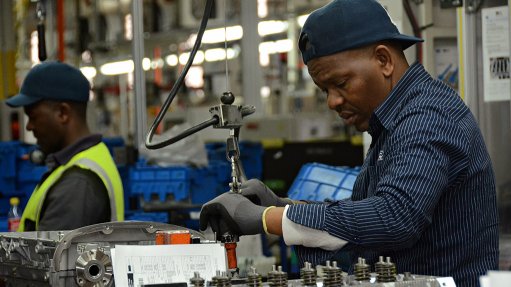
The temporary closure of the BMW and Ford vehicle assembly plants in South Africa, with a third vehicle manufacturer advising that it is expecting significant volume cuts in the future, has had an “immediate and disastrous impact” on the component supplier base, National Association of Automotive Component and Allied Manufacturers (Naacam) executive director Renai Moothilal tells Engineering News Online.
“Naacam is aware of supplier production sites that have either closed or implemented short-time working arrangements.
“Thousands of employees are impacted. The situation is expected to exacerbate in the coming weeks.”
Moothilal says the Covid-19 outbreak has caused major concern across industries globally, with the South African auto sector no different.
“In fact, one could argue that it is even more impacted than other domestic manufacturing sectors, given the globally integrated nature of this sector.
“Naacam reiterates the need for all sector participants to implement measures to assist stopping the spread of Covid-19. Similarly we welcome the recent announcement of changed Unemployment Insurance Fund conditions to allow for short-term support for companies.”
Moothilal adds that Naacam “looks forward” to work with government and other partners in the sector to finalise a plan of action to address current demand constraints in the automotive sector.
“Some of the globally used examples, such as finance and tax holidays, have to be considered.
“Ultimately a focus on keeping our people safe, together with prioritising immediate economic backstops and medium-term growth stimulants, will help us emerge from this crisis in a position of strength.”
VENTILATORS
Moothilal says it also worth noting that the capability of the South African automotive components base could be harnessed to deal with some of the medical supply shortages likely to crop up in the near future.
In Italy, for example, there is a severe shortage of ventilators at hospitals.
“A case in point is a live project underway with several suppliers to retread some capacity to produce scalable and practical ventilators to complement the current levels available in South Africa,” notes Moothilal.